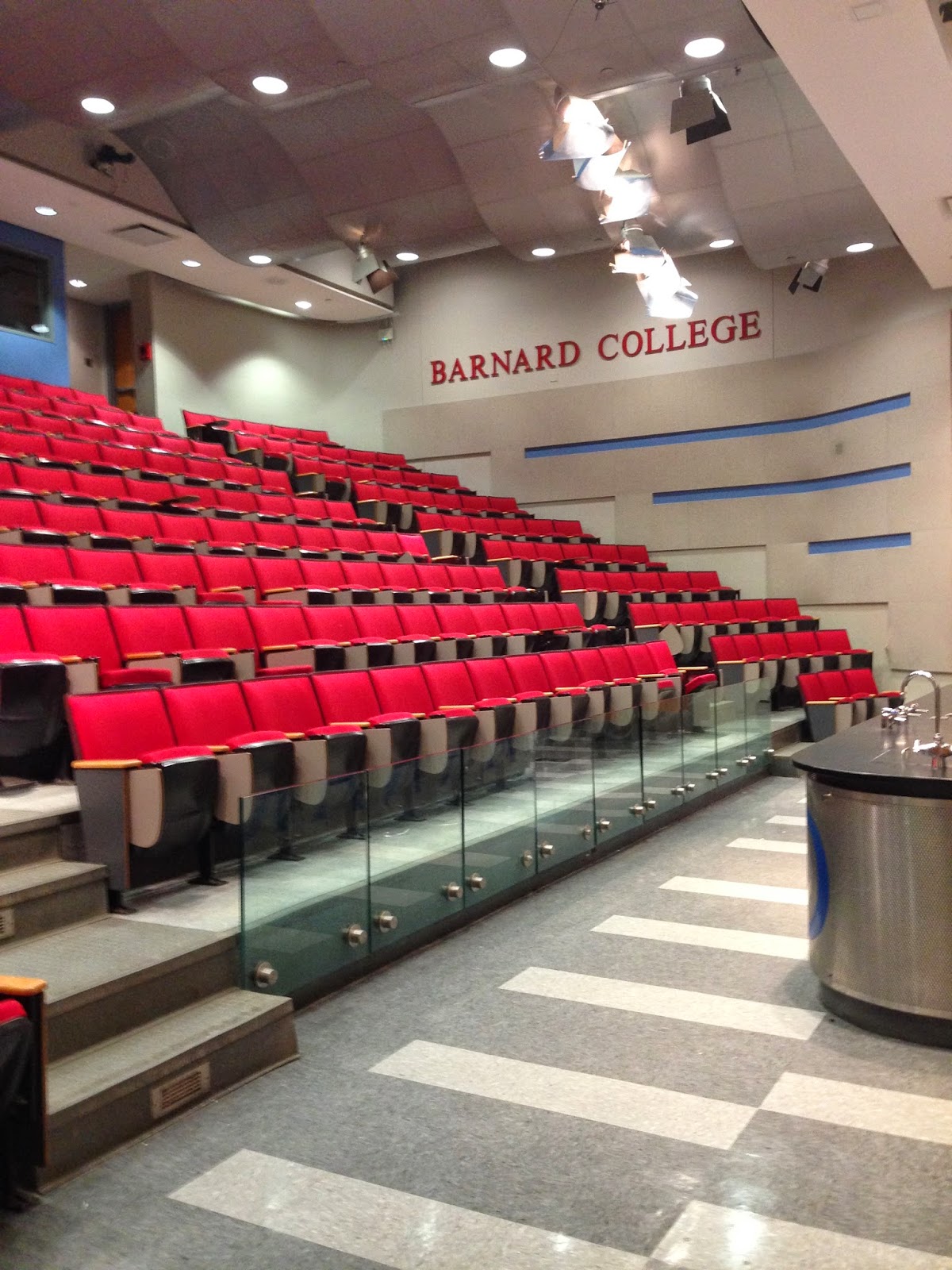 |
| Me with my first ever scientific poster at an NIH symposium. |
It’s important to keep in mind that where you think you’re
going may not be where you end up. I
began college as an art history major, and while I loved my classes and
professors and wouldn’t change my major for the world, I’m on a slightly
different path now. I will be starting
medical school this August, and I want to talk to you all about the pre-med
experience at Barnard, hopefully calm some of your fears, and answer any
questions you may have about getting ready for medical school. I’ll start with some common questions, but if
you have more specific ones, or are concerned about something I’m not
addressing, please feel free to post questions in the comments section below!
What does it mean to
be “pre-med” at Barnard?
Barnard is a liberal arts school, and encourages students to
study a wide variety of academic disciplines and not only prepare for a future
career. That’s why you can’t major in
“pre-med” at Barnard, but instead are considered on the “pre-med track.” What’s wonderful about this is that you can
major in anything you want - history, chemistry, dance, anthropology - and the
pre-med advisors will help you plan your schedule so you can be sure to get all
your requirements finished before you apply.
 |
| In my dorm room with my completed Art History thesis. |
Many students at Barnard (and everywhere - this is very
common) plan to take a year off before starting medical school. Having four years to finish a major and your
pre-med requirements is very doable, and you can apply to medical school the
summer following graduation. Students
who hope to apply the summer after junior year (to begin medical school
immediately following graduation) may not have as much flexibility in their
schedules, and may find it more difficult to major in a subject that doesn’t
have overlapping requirements with the pre-medical coursework. However, with careful planning it is still
possible.
What’s different about
being pre-med at Barnard?
I feel strongly that the best doctors (and therefore the
best med school applicants) are people with a wide variety of experiences: social, academic, and extracurricular. I don't think there is a cookie-cutter
"best way" to get into medical school, and I was so lucky to go to
Barnard because they embraced that philosophy as well. I
wanted to work in the biology labs and be an art history major. Sure, Barnard said, no problem! I wanted to spend my free time planning
on-campus events and wasn’t even a member of the Barnard pre-medical society. No big deal.
“Pre-med robots” are rare at Barnard.
All the students I knew who planned on going to medical school were
interested in so many other things, and were participants in a huge array of
activities, both on and off campus. I
really do think that if I had gone to any other school, it would have taken me many
years of being unhappy in a curatorial position at a museum to realize my
passion (or, let's be real, obsession) for genetics. Because of the flexibility of Barnard's
curriculum and the general encouragement on campus to just learn what you love, I am
going to be a doctor (so crazy to think about!).
Questions about preparing for medical school at Barnard? Ask away!
Melanie
 |
| My cat Harriet "helping" me study organic chemistry. |




